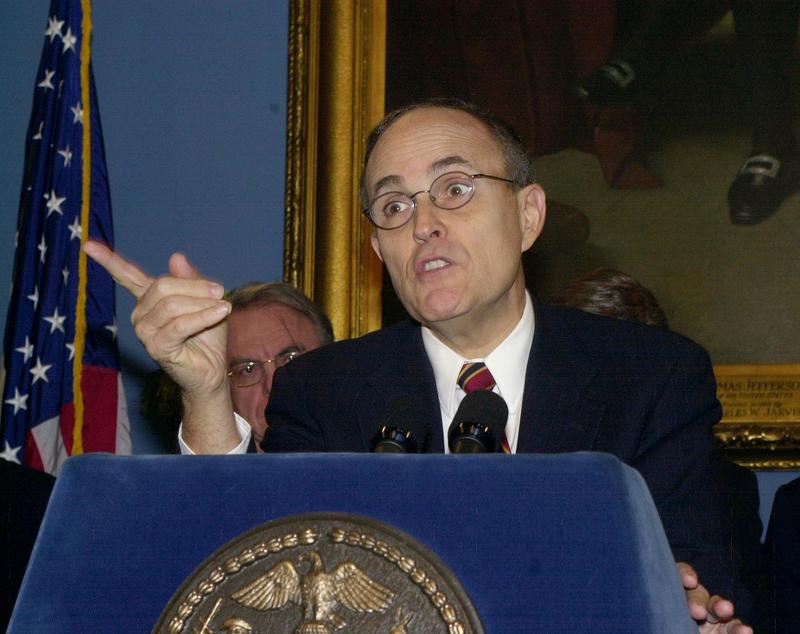
Former New York Mayor Rudy Giuliani is one of Donald Trump's most valuable and ubiquitous surrogates lately. He defends the controversial Republican presidential candidate on countless cable and broadcast news programs, even as most Republican leaders have distanced themselves from Trump's outrageous comments and conspiracy theories.
Giuliani's rise in Republican circles may seem puzzling at first, given the bruising defeat he suffered during his own 2008 presidential bid. The big city mayor was far too socially liberal for Republican primary voters.
But it's really not that odd for him to be the face of the party with this particular nominee.
Having covered Giuliani for almost seven of his eight years as mayor, I saw a Republican politician who - not unlike Trump - shifted from populist to pugilist, sometimes at his own expense.
He was elected in a mostly Democratic city by running as a Republican, Liberal and Independent Fusion candidate who vowed to be a strong leader. Upon taking office, he endorsed incumbent Democratic Governor Mario Cuomo over his Republican opponent, George Pataki. And he supported abortion rights, immigration and President Bill Clinton's anti-crime bill.
But many black voters didn't trust the man who defeated David Dinkins, the city's first African-American mayor. They chafed at a "broken windows" approach to policing that included stop and frisk tactics. Those tensions blew up when an African immigrant named Amadou Diallo was shot 41 times by police in 1999. The public was outraged but Giuliani stood by the police; and it wasn't the only time.
When questioned about his poor relations with black communities, Giuliani claimed that he'd "done more for the African American community" than Dinkins on "jobs, economic development, crime being down, lives being saved."
That comment sounds very similar to Trump's new attempt to reach black voters by calling their neighborhoods "war zones."
When Giuliani saw an opening for the U.S. Senate, he shifted to the right. Hillary Clinton was also running and he needed to appeal to more conservative Republicans. He supported vouchers for parochial school students and (unsuccessfully) cut off funding for the Brooklyn Museum over an exhibit he found offensive to Catholics.
Giuliani ultimately abandoned his 2000 Senate race because of his diagnosis of prostate cancer. He'd also just left his wife for another woman. His popularity plunged. He became famous for his feuds - chastising "jerky" reporters, a Democratic judge whose decision he opposed, and calling a ferret owner "deranged." Sound familiar?
That's how Giuliani would have ended his two terms had it not been for his leadership during the September 11th attacks in 2001. The abrasive New Yorker became "America's Mayor."
Seeing Giuliani stump for Trump now, it's not so out of character. Both are outsized, New York personalities that love a good fight (and headlines). Both have had complicated personal lives. And both are unorthodox Republicans — capable of making a populist appeal that resonates with a lot of voters, but that also ultimately alienates many.
